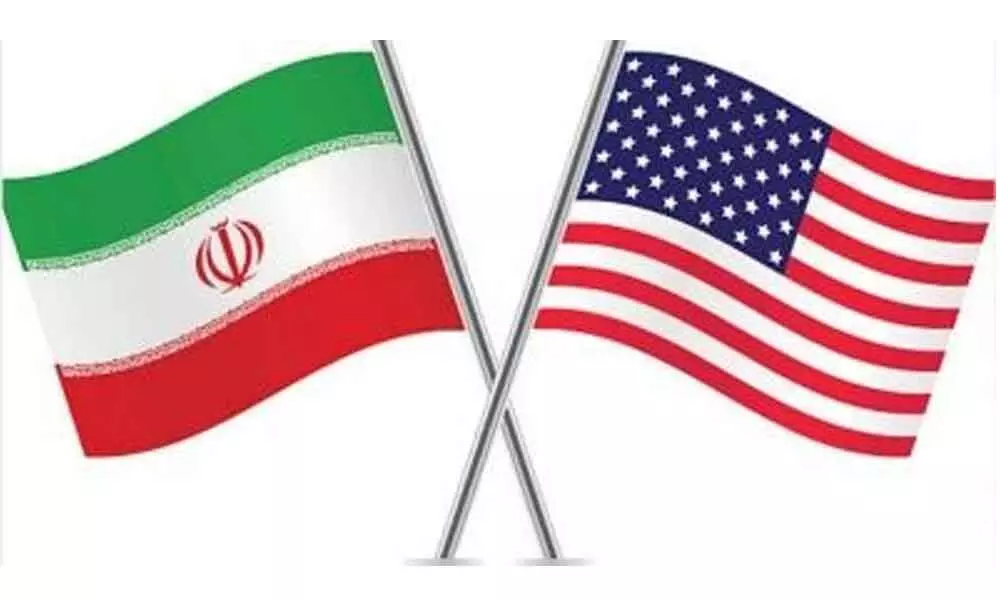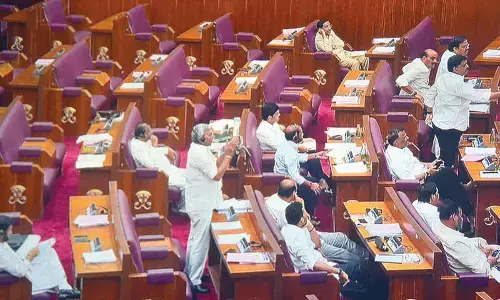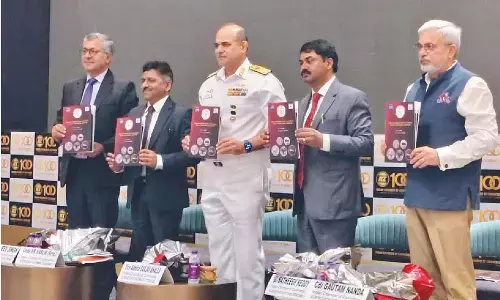India must help US, Iran come closer

Representational Image
In light of the meltdown in Afghanistan, it is of utmost urgency to prevent a major eclipse and detriment to global, Indian and American values and interests in the middle-Asia theatre.
In light of the meltdown in Afghanistan, it is of utmost urgency to prevent a major eclipse and detriment to global, Indian and American values and interests in the middle-Asia theatre.
To start with, this column invites the reader to imagine 'Middle Asia' as a vast geography that comprises Iran, Afghanistan, Pakistan, the countries of Central Asia (Turkmenistan, Kazakhstan, Kyrgyzstan, Uzbekistan, Tajikistan), Azerbaijan, and the southern regions of Russia. This entire region is now coming under the influence of China, Pakistan, Turkey, and of course, Russia.
Out of the above, Iran is the only one thus far which is not yet fully in the Chinese orbit. If the US sanctions from Iran are not lifted soon, Iran will slip away into the China axis. It is to be noted that Iran and China have recently signed a 25-year Cooperation Program, in March 2021, wherein China will invest $400 billion in Iran, in exchange for guaranteed and heavily discounted supply of oil from Iran.
China's influence on Central Asia can be seen from another prism also. Apart from trade and economy links, about 20 per cent of defence procurements of some of Central Asian countries is from China now, up from barely 2 per cent about 7 years ago. Against this background, the US and India will soon have not even a toehold in the geography of Middle Asia. The only way to get a foot in the door in Middle Asia for India and US is to work closer with Iran – on trade, infrastructure, health, climate change, and such subjects. And this cannot be done till the American embargo continues, and till the sanctions continue Iran will keep sliding to the China-axis.
The emerging scenario in Afghanistan means that now It is in global, and national interests of the United States and India that Iran must not be pushed further into an orbit of Chinese influence.
Thus, the US must lift sanctions on Iran, so that both the US and India, and other global community, can start engaging with Iran on variety of trade and projects, and also people-to-people exchanges. The US and India both will do well to remember the proverbial phrase, "If life hands you a lemon, make lemonade."
If Iran sanctions are not lifted, and normal relations that allow for trade and people-to-people relations with Iran are not restored, then the global community, and both the US and India, and the idea of liberal democracy, may be locked out for a long time from the theatre of middle-Asia.
Plus, expense of logistics of any export-import trade with nations of Central Asia - Azerbaijan, Kazakhstan, Kyrgyzstan, Uzbekistan, Turkmenistan, and even Tajikistan - will become prohibitive for the US, EU nations, and India, among others, leading to cost of their goods and services becoming non-competitive in this region.
Among other, even in the future of technology, the Middle Asia region would increasingly adopt Chinese technology standards. With Iran leaning towards China, and Afghanistan under the Taliban, and international access of logistics of goods and services at competitive rates denied to the 5 Central Asian nations, China will be placed well to provide and monopolise the supply of hardware, fibreoptic cables, and next-gen AI technologies to these nations, and thereby extend its hegemony of technology standards and ideology in this entire region of Middle Asia.
One of the cardinal principles of leadership is to not be distracted during chaotic times. Instead of wasting time and energy on fire-fighting the same old battles in Afghanistan, world leaders must immediately look at the bigger picture and the wider region, and calibrate an immediate strategy for middle-Asia. Today it starts with brokering an honest deal between the United States and Iran, that is mediated by India.
(The writer is the President of Imagindia Institute)











